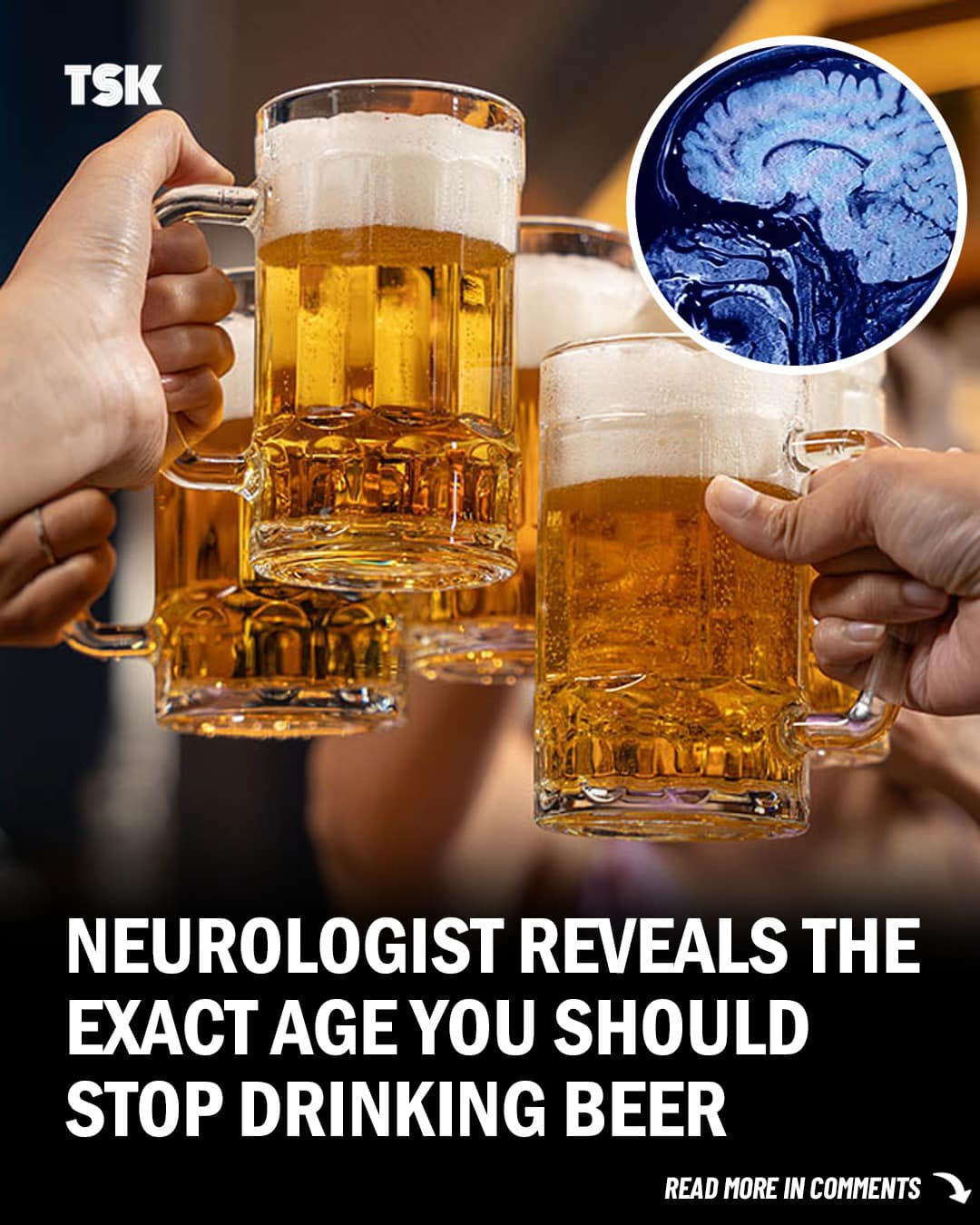🧠 Neurologist Reveals the Exact Age You Should Stop Drinking Beer — and Why It Matters
Beer is one of the most widely consumed alcoholic beverages in the world. While enjoying it in moderation may not seem harmful for many adults, neurologists warn that continuing to drink beer beyond a certain age can increase the risk of cognitive decline, brain shrinkage, and even neurodegenerative diseases.

So… what’s the age? Let’s dive in.
⏳ What’s the “Safe” Age Limit According to Neurologists?
Many neurologists suggest that people should significantly reduce or stop drinking beer after the age of 40–50, especially if consumed regularly.
👉 Why this age range?
Because by your 40s, the brain’s natural protective mechanisms begin to weaken, and alcohol can accelerate aging processes in the brain and nervous system.
⚠️ What Happens to the Brain as We Age?
As we get older:
- Brain volume gradually decreases (especially after age 40)
- The blood-brain barrier weakens, making it easier for harmful substances — like alcohol — to damage brain cells
- Neurogenesis (the creation of new brain cells) slows down
- Memory, focus, and decision-making skills may begin to decline
Drinking beer regularly during this phase can exacerbate these changes, particularly if consumption is not moderate.
🍺 How Beer Affects the Brain (Especially After 40–50)
1. Alcohol Shrinks Brain Tissue
Studies show that even moderate drinking can lead to brain volume reduction, especially in the hippocampus — the area responsible for memory and learning.
2. Impacts on Cognitive Function
- Long-term alcohol use is linked to increased risk of dementia, including Alzheimer’s disease.
- Regular beer consumption can impair executive function, reaction time, and mood regulation.
3. Disrupts Sleep and Mental Clarity
While alcohol might help you fall asleep, it disrupts REM sleep, leading to poor quality rest, which is essential for brain repair and memory.
4. Interferes with Nutrient Absorption
Alcohol depletes vitamin B1 (thiamine) and magnesium, both of which are crucial for nervous system function.
✅ What Can You Do Instead?
If you’re over 40 or nearing 50, neurologists recommend:
- Limiting alcohol to no more than 1 drink per day (or cutting it out completely)
- Choosing non-alcoholic beer alternatives or low-alcohol drinks
- Supporting brain health through:
- Omega-3 rich foods
- Physical exercise
- Cognitive activities (puzzles, learning)
- Quality sleep
🧠 Final Thoughts:
While the exact age might vary for each person depending on genetics, lifestyle, and health conditions, most neurologists agree:
The risk-to-benefit ratio of drinking beer shifts after age 40–50 — and not in your brain’s favor.
So if you’re in that age group, it might be time to rethink that evening beer — your brain will thank you.